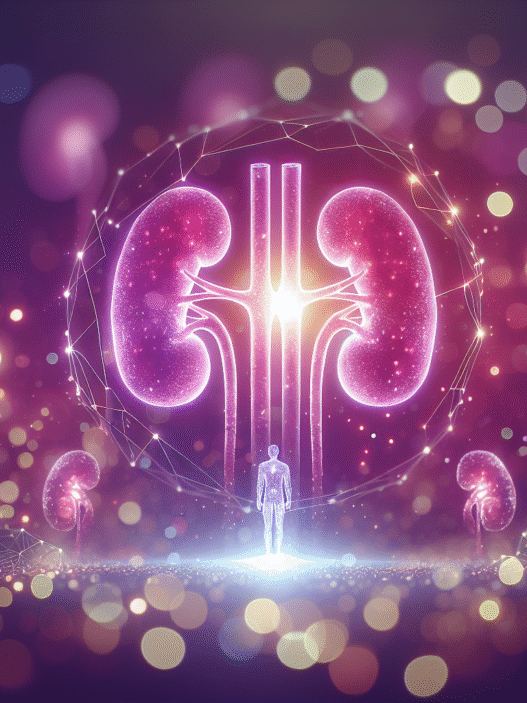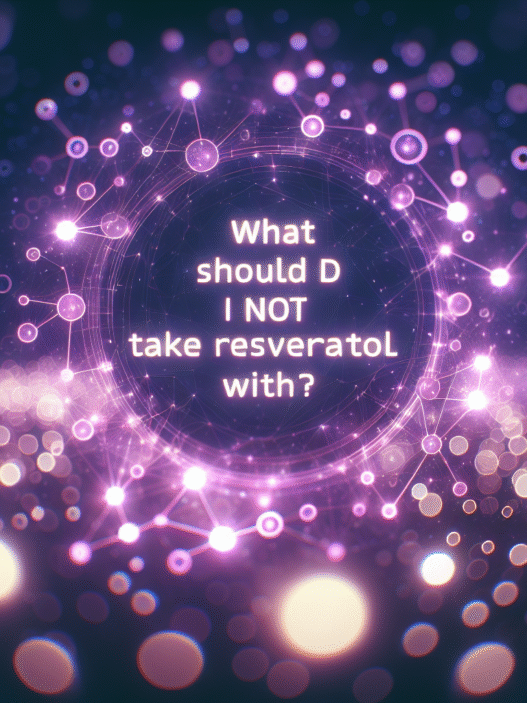Understanding Resveratrol
Definition of Resveratrol
Resveratrol is a natural compound that has garnered attention for its potential health benefits, particularly in the realm of anti-aging and holistic wellness. This polyphenolic compound has been detected in over 70 plant species and is most notably found in the skin and seeds of grapes. Resveratrol serves as a phytoalexin, which means it is synthesized by plants in response to mechanical injury, UV radiation, and fungal attacks (PubMed Central).
Sources of Resveratrol
The sources of resveratrol extend beyond grapes. This compound is also present in various human foods and beverages. Below is a table outlining some common sources of resveratrol:
| Source | Resveratrol Content (mg per 100g) |
|---|---|
| Red Grapes (skin) | 1 – 13 |
| Red Wine | 0.2 – 5 |
| Peanuts | 0.7 – 1.0 |
| Blueberries | 0.1 – 0.5 |
| Dark Chocolate | 0.1 – 0.2 |
In addition to grapes and red wine, individuals can find resveratrol in foods like peanuts, blueberries, and dark chocolate. For a deeper understanding of how incorporating resveratrol into a diet may impact health, consider exploring its benefits, such as those found in our article on what are the benefits of taking resveratrol?.
With a growing interest in the effects of resveratrol on well-being, many seek to answer the question, how do you feel after taking resveratrol? by observing potential changes in their health after regular consumption.
Health Benefits of Resveratrol
Resveratrol has gained attention for its potential health benefits, acting as a natural compound that may support various aspects of wellness. Below are some key areas in which resveratrol may provide protective effects.
Protective Effects on Brain Function
Research indicates that resveratrol can play a significant role in preserving brain health. Studies suggest that this compound protects brain cells from damage and may slow age-related cognitive decline (Healthline). Resveratrol also appears to interfere with the formation of protein fragments that are linked to Alzheimer’s disease development, contributing to overall cognitive health.
Impact on Blood Pressure
Resveratrol may help improve cardiovascular health by lowering blood pressure. This effect is believed to stem from its ability to boost nitric oxide production, which relaxes blood vessels and promotes better blood flow (Healthline). Regular consumption of resveratrol may assist in maintaining healthy blood pressure levels, crucial for heart health.
| Resveratrol Supplementation | Potential Impact on Blood Pressure |
|---|---|
| Low Intake | Minimal effect |
| Moderate Intake | Reduced systolic blood pressure |
| High Intake | Significant reduction in both systolic and diastolic blood pressure |
Influence on Cholesterol Levels
Resveratrol may have a beneficial influence on cholesterol levels by reducing the activity of an enzyme that regulates cholesterol production. Additionally, it can decrease the oxidation of “bad” LDL cholesterol, which is associated with heart disease (Healthline). Healthy cholesterol levels are vital for reducing the risk of related cardiovascular issues.
| Type of Cholesterol | Influence by Resveratrol |
|---|---|
| “Good” HDL | Possible increase |
| “Bad” LDL | Possible decrease in oxidation |
Anti-Aging Properties
Resveratrol has been linked to anti-aging effects, having shown promise in extending lifespan in animal studies. It activates certain genes associated with disease resistance in aging, mimicking some effects of caloric restriction (Healthline). As a result, this compound could be a valuable part of a holistic approach to aging gracefully.
For additional information on the benefits of resveratrol, refer to our article on what are the benefits of taking resveratrol?. Exploring the implications of resveratrol may provide users with insights into enhancing their overall health and longevity.
Resveratrol and Disease Prevention
Resveratrol has garnered attention for its potential protective effects against various diseases. Research highlights its role in promoting heart health, preventing diabetes, and reducing inflammation.
Potential Benefits for Heart Health
Resveratrol may significantly impact heart health by serving as an anti-inflammatory antioxidant. Studies have shown that it can provide a protective lining for blood vessels, which may help reduce the risk of heart disease and strokes (Cleveland Clinic). Its ability to influence cholesterol levels is noteworthy; it reduces the activity of an enzyme responsible for cholesterol production and decreases the oxidation of “bad” LDL cholesterol.
| Health Effect | Description |
|---|---|
| Provides vascular protection | Protects blood vessels, potentially reducing heart disease risk |
| Influences cholesterol levels | Reduces enzyme activity for cholesterol production |
| Decreases LDL oxidation | Lowers the oxidation level of harmful LDL cholesterol |
Role in Diabetes Prevention
Research suggests that resveratrol might play a role in diabetes prevention by helping the body to become less sensitive to insulin. This is crucial as insulin resistance can lead to type 2 diabetes (WebMD). By improving insulin sensitivity, resveratrol may help maintain healthy blood sugar levels.
| Benefit | Description |
|---|---|
| Improves insulin sensitivity | May assist in preventing insulin resistance |
| Supports blood sugar regulation | Helps maintain healthy glucose levels |
Effects on Inflammation
Inflammation is a significant factor in many chronic diseases, including heart disease and diabetes. Resveratrol acts as an anti-inflammatory agent, helping to reduce inflammation in the body. This property is vital as chronic inflammation can lead to various health complications.
| Effect | Description |
|---|---|
| Anti-inflammatory properties | Reduces chronic inflammation |
| Supports overall health benefits | Aids in preventing diseases related to inflammation |
Understanding the potential health benefits of resveratrol is essential for those seeking what are the benefits of taking resveratrol?. Its role in promoting heart health, preventing diabetes, and mitigating inflammation emphasizes its significance in natural health and holistic wellness practices.
Safety and Dosage of Resveratrol
As more people explore the potential benefits of resveratrol, understanding safety and dosage becomes essential. Here’s a guide on allergic reactions, recommended dosage levels, and possible side effects.
Allergic Reactions and Safety Considerations
While resveratrol is generally considered safe when consumed in amounts naturally found in foods, it may provoke allergic reactions in individuals sensitive to grapes or wine (WebMD). This includes symptoms such as itching, swelling, or difficulty breathing. It’s important for those with known sensitivities to be cautious when considering resveratrol supplements.
Supplements are not recommended for children, pregnant women, or breastfeeding mothers due to a lack of conclusive research regarding safety in these populations (WebMD). Consulting with a healthcare provider before starting supplementation is advisable.
Recommended Dosage Levels
The recommended dosage of resveratrol varies based on its source and purpose. Research indicates that resveratrol supplementation is generally well-tolerated at doses up to 5 grams per day.
| Source | Typical Dosage |
|---|---|
| Natural Food Sources | Variable; includes foods like grapes, berries, and red wine |
| Supplements | Up to 5 grams per day considered safe |
High doses beyond 5 grams may lead to adverse gastrointestinal symptoms.
Potential Side Effects
Though resveratrol has low toxicity levels, higher doses can lead to several side effects. Common adverse effects reported include:
- Nausea
- Diarrhea
- Vomiting
- Abdominal discomfort
- Flatulence
These symptoms are typically encountered when resveratrol is consumed in supplement form rather than through food sources. Monitoring one’s response to resveratrol supplements is important, and patients should stop using the supplement if they experience any severe side effects (NCBI PMC, PubMed Central).
Individuals interested in understanding the broader implications of resveratrol and its health benefits can explore our article on what are the benefits of taking resveratrol?.
Resveratrol Supplements vs. Natural Sources
Choosing between resveratrol supplements and natural sources of this compound can significantly influence how one experiences its effects.
Comparison of Effectiveness
Resveratrol is found in various foods and drinks, most notably in red wine, grapes, berries, and peanuts. These natural sources provide resveratrol alongside other beneficial compounds, which may enhance its effects on health. Supplements, while offering concentrated doses, may lack the additional nutrients found in whole foods.
| Source | Resveratrol (mg per 100g) |
|---|---|
| Red Wine | 0.2 – 5.8 |
| Grapes (Red) | 0.2 – 0.5 |
| Blueberries | 0.1 – 0.3 |
| Peanuts | 0.01 – 0.3 |
Supplements like capsules are easy to use but carry certain risks. For instance, high doses can lead to toxicity and adverse effects, as reported in numerous studies (PubMed Central). The natural compounds in food sources may provide additional protective benefits through synergistic effects.
Benefits and Risks
Natural sources of resveratrol come with a range of other benefits—not just their resveratrol content. Most notably, they include other antioxidants, vitamins, and fibers that support overall wellness. On the other hand, supplements can deliver high doses in a single serving but may lead to risks such as toxicity, metabolic interference with certain medications, and potential hormonal effects, particularly in vulnerable populations like pregnant women and children (WebMD).
| Factor | Natural Sources | Supplements |
|---|---|---|
| Nutritional Content | High in vitamins and antioxidants | Primarily resveratrol |
| Dosage Control | Variable based on intake | Fixed dose |
| Risk of Toxicity | Low | Potentially high at elevated doses |
| Dietary Synergy | Yes, enhances absorption and effectiveness | No additional nutrients |
Considerations for Consumption
When deciding between supplements and natural sources, individuals should consider their health goals, dietary preferences, and reactions to the compound. While many people find the effects of natural food sources to be favorable, others might benefit from the convenience of taking a supplement. Users must be aware of interaction risks with medications, as resveratrol can influence drug efficacy, particularly for those on immunosuppressants or HIV medications (PubMed Central).
For optimal results, individuals are encouraged to consult healthcare professionals before starting any regimen, especially regarding daily consumption. For those questioning if it is safe to take resveratrol every day, check our article on is it okay to take resveratrol every day?.
Understanding both the benefits and risks associated with resveratrol will aid in making informed dietary choices and potentially enrich overall health and wellness.
Ongoing Research on Resveratrol
The ongoing exploration of resveratrol’s potential health benefits continues to generate interest among researchers and health enthusiasts alike. This section highlights current studies and findings, areas of focus for future research, and the implications for holistic wellness.
Current Studies and Findings
Resveratrol has been the subject of nearly 200 studies over the past two decades, addressing a variety of indications including cancer, menopause symptoms, diabetes, metabolic syndrome, and cardiovascular health. Despite the extensive research, no standardized treatment protocols have been established for all conditions. However, it is important to note that resveratrol is generally well-tolerated at doses up to 1 g per day.
The majority of studies have focused on pharmacokinetics, type 2 diabetes mellitus, and cardiovascular diseases. Significant attention has been given to the metabolic effects of resveratrol, leading to investigations in areas such as non-alcoholic fatty liver disease and obesity. Trials have included a diverse participant pool, ranging from healthy adults to those with existing health conditions.
Here is a summary of participant demographics in recent clinical trials:
| Participant Type | Percentage |
|---|---|
| Healthy Volunteers | 35% |
| Participants with Underlying Pathologies | 56% |
| Mean Body Mass Index (BMI) of RCT Participants | 28.9 |
Areas of Focus for Future Research
Future research is likely to delve deeper into several specific areas. This includes expanding studies on the long-term effects of resveratrol on chronic diseases, especially given its high antioxidant potential and anti-inflammatory properties. The implications of resveratrol on conditions like metabolic syndrome and potential preventive measures for diabetes will also be of interest.
Additionally, researchers are likely to explore the effects of resveratrol on broader populations, including different age groups and varying health statuses. The understanding of potential drug interactions, particularly with cytochrome P450 enzymes, is another critical area that requires further investigation. These areas could significantly enhance our understanding of how do you feel after taking resveratrol?
Implications for Holistic Wellness
With an increased understanding of resveratrol’s properties, its implications for holistic wellness become clearer. Resveratrol is recognized for its various beneficial effects, including antioxidant, anti-inflammatory, anti-carcinogenic, and neuroprotective characteristics. The findings from ongoing research can help inform individuals about the potential health benefits and risks associated with resveratrol consumption.
Strategies that highlight the integration of resveratrol, whether through diet or supplementation, as a part of a balanced lifestyle may encourage a more holistic health approach. Individuals seeking natural health solutions can monitor the latest research updates to stay informed about the most effective uses of resveratrol and its potential to enhance their overall well-being.
For additional insights on resveratrol, including its benefits and potential interactions, explore our articles on what are the benefits of taking resveratrol? and is it okay to take resveratrol every day?.





















